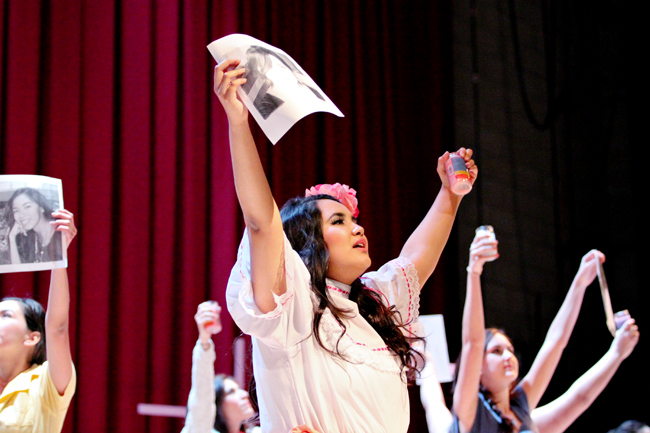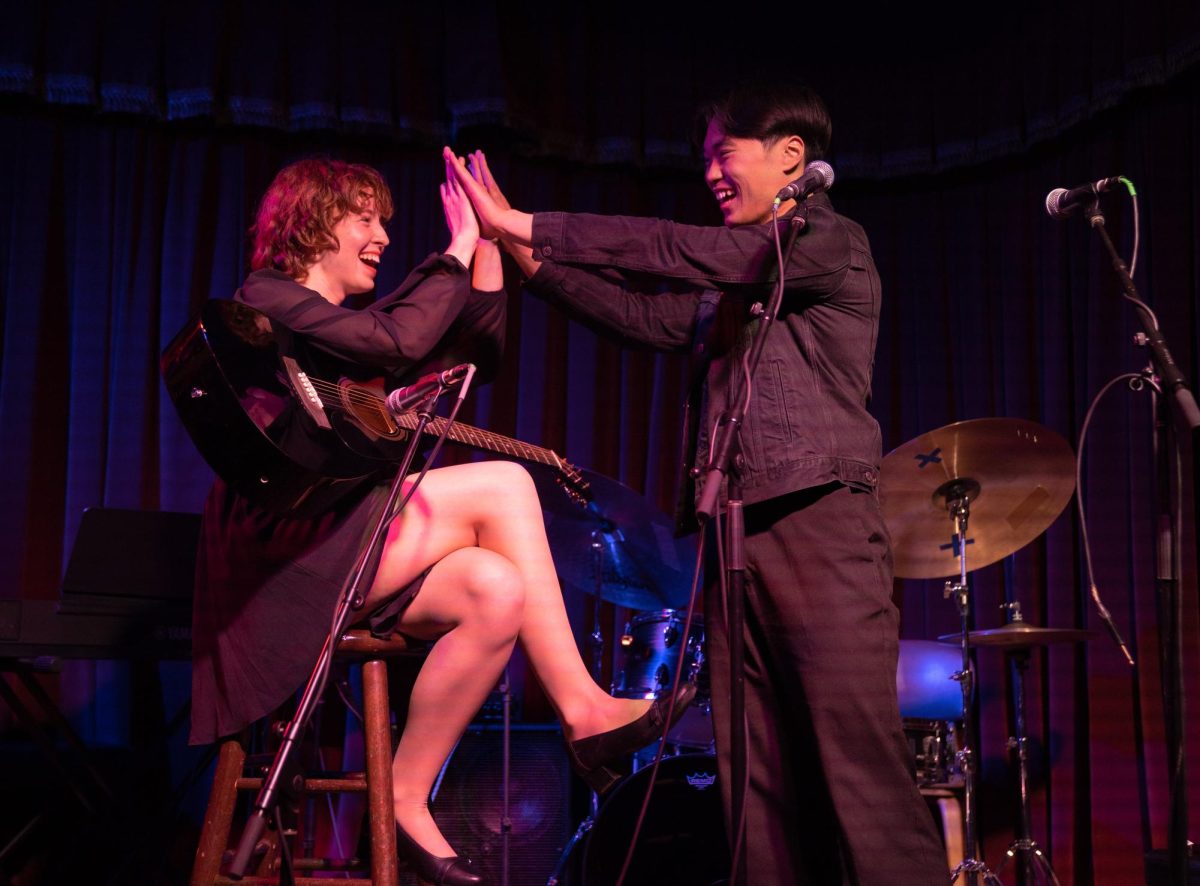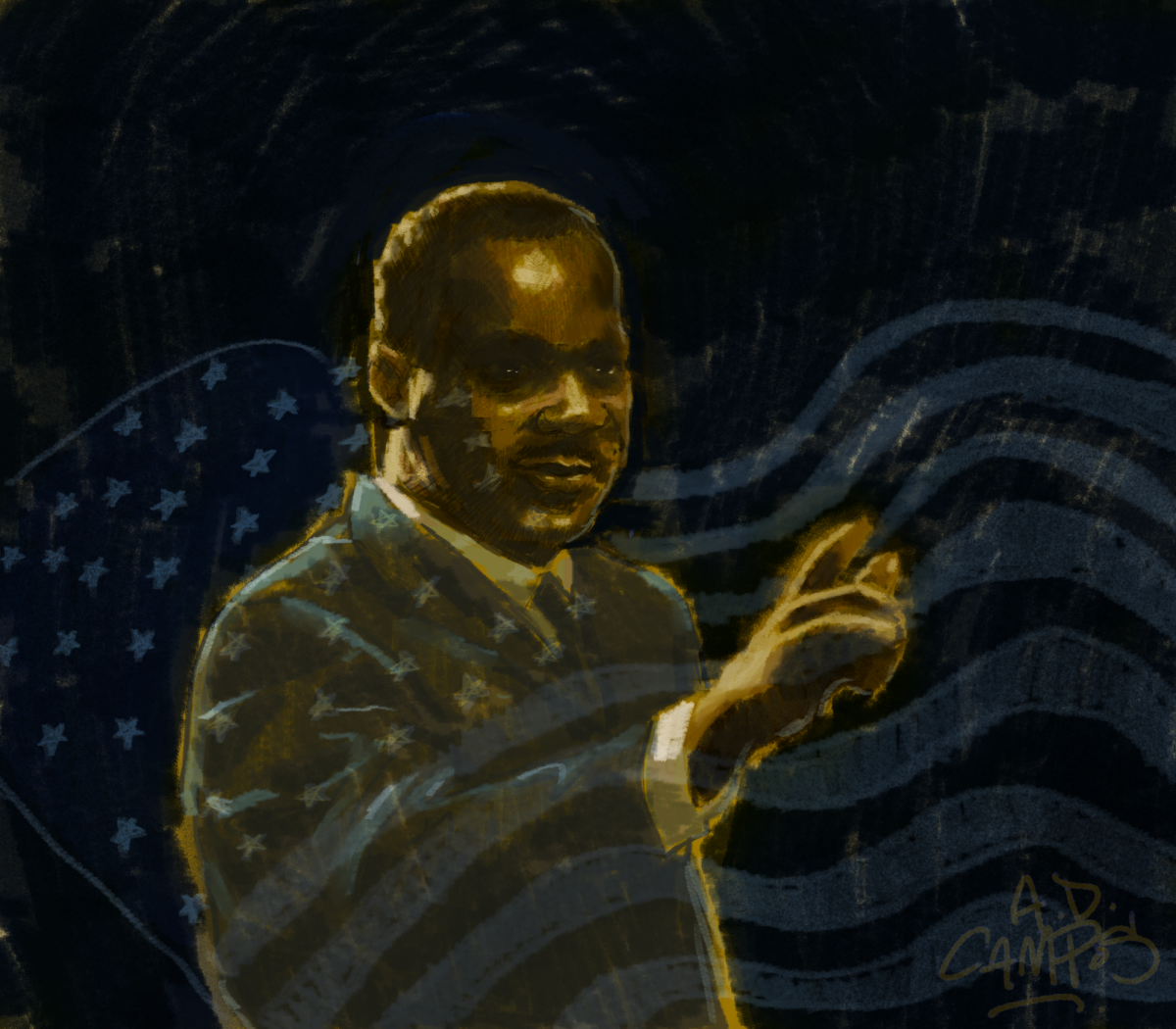A small audience hung back after the second performance of the play “The Women of Juarez” at the Payne theater on Tuesday. “The Women of Juarez” is one of over 40 productions showing this week as part of the Cohen New Works Festival presented by the University Co-op. The audience members were participating in a talkback led by Madilynn Garcia, a theater and dance sophomore and the dramaturge for the production.
“How did this play make you feel?” asked Garcia.
“Heartbroken,” said an audience member.
“Enraged,” said another.
“Helpless,” added a man in the back.
“The Women of Juarez” focuses on the systematic, mass killing of women that has taken place over the last two decades in the city of Juarez. Amnesty International estimates that since the first recorded death in 1993, over 800 women have been violently killed in Juarez. Many of them are buried in the desert sand around the city, leading to the phrase “flores de arena” (flower of the sand) to describe the many victims.
Bianca Sulaica, co-writer and producer of the play, and Isaac Gomez, co-writer and director, both theater and dance seniors, stood to the side on Tuesday and listened to the audience members express all of the emotions they themselves have had in the months they’ve been working on the play. In those months (all sixteen of them), they’ve gone through ten different versions of the script, assembled a cast of actresses all of Hispanic descent, and even, in Gomez’s case, made a visit to the city of Juarez to gather the real-life stories of the women living there.
Neither Sulaica nor Gomez understood the magnitude of the violence in Juarez before this project, despite the fact that they both grew up in border towns. Sulaica is from Del Rio and Gomez from El Paso, a city directly across the border from Juarez. Sulaica first learned about the violence in her class on “La Chicana.” After hearing about it, she called Gomez and shared her vision to produce a play.
To the benefit of the audience, Gomez and Sulaica turned their frustration with the feminicide in Juarez into 67 tense minutes of theater that expertly parse the consequences and causes of the violence. It does this while paying tribute to the beauty of the culture, the strength of the women and the grace of death.
A desire to sympathize with the women of Juarez led Gomez to visit the city during the past winter break. Originally, he had just intended to visit the pink crosses that are spread across the dessert to commemorate the missing.
“I had no intention to speak with women there,” Gomez said. “I’m not even fluent in Spanish. And [the feminicide] is not a great conversation starter.”
But while in Juarez, Gomez’s host took him to meet a local hairdresser, with whom he spoke to about the murders.
“She [the hairdresser] said to me, ‘There’s a woman who lives down the street by the name of Yoli and her daughter’s still missing. If you want to talk to her, you should’,” Gomez said.
When Gomez visited Yoli, he found the woman who would become the focus of the play, which was then only a loosely connected string of monologues. Yoli had hung a poster of her daughter, missing for four years now, in the entrance of her house. She struggled to pay attention to her remaining daughter, a seven-year old in bare feet who ran through the house. The girl was “fighting for her mother’s attention but couldn’t get any,” Gomez said.
The story of Yoli and her two daughters, one missing and one left behind, became the backbone of the script, which Gomez and Sualica said is still far from finished.
“We don’t have specific plans for the script beyond Thursdays closing,” Sulaica said. But they hope to re-visit it in the future, after graduation.
It would be easy for a play with an all-Latina cast about female empowerment and domestic violence to fall into Lifetime movie-esque tropes. But “The Women of Juarez” avoids all of these without sacrificing the feminist vision at the center of the play, and it does this in large part because of the sensitivity and self-awareness of its creators.
“We’re not the women of Juarez,” Gomez said. “That was one of the first things we said when going into this. I can’t take the pain of the women of Juarez and make it mine. But I can empathize and I can sympathize.”















